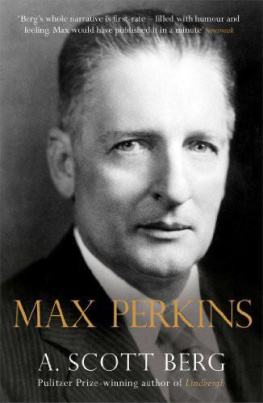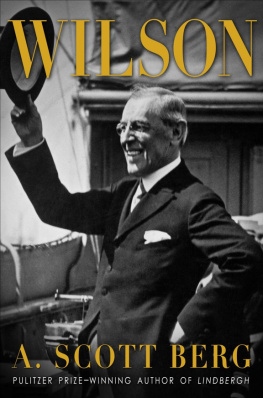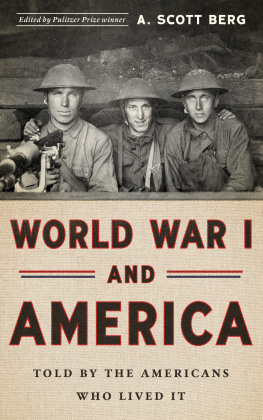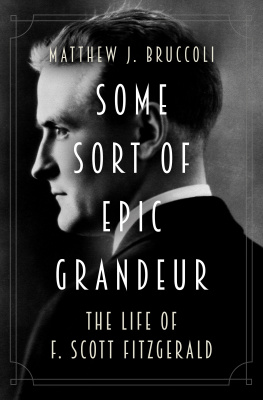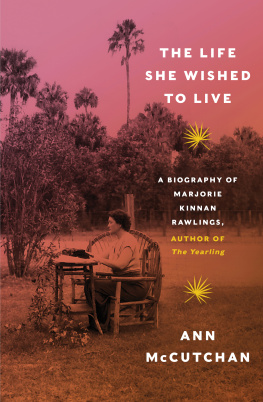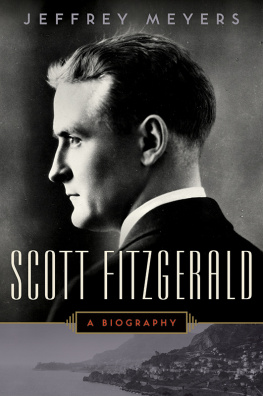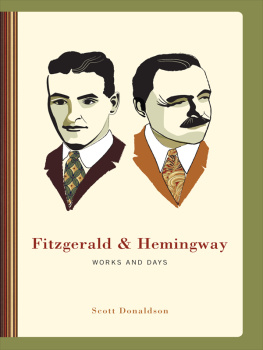Acknowledgments
It is too soon to measure the achievement of an editor like Maxwell Perkins. That achievement is a part of the literary history of our day here in America, John Hall Wheelock wrote in 1950 in the introduction of Editor to Author. When I began researching this biography in 1971, I found, to my amazement, that Perkinss career still had been neither chronicled nor evaluated and that whole aspects of his life remained shadowy even to people who had been close to him.
To avoid secondhand facts as much as possible, I have relied almost exclusively on primary source material: tens of thousands of letters Perkins wrote and received; manuscripts he edited; interviews with those who knew him. Scores of people assisted me in both the gathering and the interpretation of information about Maxwell Perkins and in transposing that information into this book. To those named below and those too numerous to list, I offer my deepest gratitude and sincerest hope that this work compensates them for the time and effort they invested.
I am deeply indebted to Louise and Max Perkinss five daughtersMrs. John Frothingham, Elisabeth Gorsline, Mrs. Robert King, Mrs. George Owen, and Mrs. Reid Jorgensen. Each of them took me into her home and lavished information and hospitality upon me. They made no demands and imposed no restrictions. For six years they have been more than sources of material; they became sustaining friends.
Three more of Max Perkinss relatives gave generous amounts of time and information as well. His sister Mrs. Archibald Cox, his brother Edward N. Perkins, and his niece Joan Terrall supplied me with wonderful insights and anecdotes. Mrs. Terrall, above all, kept me on the track in the earliest days of research, when there seemed to be countless trails to follow.
I am equally indebted to two of Max Perkinss dearest friends, John Hall Wheelock and Elizabeth Lemmon. The eloquent Mr. Wheelock gave so much of himself, racking his brain to recall specific moments of the last ninety years, that my long interviews with him invariably ended with his head literally aching from the effort. The charming Miss Lemmon was equally generous. Her shoebox full of personal letters from Perkinsmy Aspern Paperswere matched in value only by the innumerable hours of delightful talk she contributed to this project.
Malcolm Cowley assisted me in three important ways: His New Yorker profile of Perkins, Unshaken Friend, published in 1944, was the most comprehensive account of Perkinss life to date. It proved to be a handy Baedeker during my early wanderings. Mr. Cowley also gave generously of his time, answering dozens of queries both in interviews and letters. Finally, he provided me with the comprehensive notes he made while composing Unshaken Friend.
The greatest single collection of Perkins material is, of course, the archives of Charles Scribners Sons, which are housed in the Princeton University Library. For permission to roam freely through the blue boxes of letters, I am grateful to Charles Scribner, Jr. In addition, he supplied me with hours of his own recollections of Perkins, assistance in reaching other people who knew him, and a desk at which to work while I raked the file cabinets on the fifth floor of the Scribner Building in New York City. I am also obliged to Burroughs Mitchell, who assisted me in the early stages of researching and writing this book. Heartfelt thanks to Irma Wyckoff Muench, Maxwell Perkinss secretary of twenty-five years and executrix of his estate, for her remembrances and many special favors.
For interviews, informative correspondence, legal permissions, supplying letters and other information pertaining to Maxwell Perkins, I am grateful to: LeBaron R. Barker, Jr., Elizabeth Cox Bigelow, Judge John Biggs, Jr., Dr. John Bordley, Vance Bourjaily, Nancy Hale Bowers, Madeleine Boyd, Carol Brandt, Prof. Matthew J. Bruccoli, Aubrey Burns, Katherine Newlin Burt, Nathaniel Burt, Erskine Caldwell, Taylor Caldwell, Melville Cane, Cass Canfield, Marguerite Cohn, Corinne Cornish, Edla Cusick, Marcia Davenport, Dr. Josephine Evarts Demarest, Elizabeth and Prescott Evarts, Katherine Evarts, Richard C. Evarts, Anne Geismar, Martha Gellhorn, Paul Gitlin, Arnold Gingrich, Sheilah Graham, Christine Weston Griswold, Laura Guthrie Hearne, Dr. Gregory Hemingway, Mary Hemingway, Katharine Hepburn, Mary Iacovella, Reid Jorgensen, Matthew Josephson, Frances Kellogg, Dr. Robert King, Jean Lancaster, Ring Lardner, Jr., Alice Roosevelt Longworth, Storer Lunt, Archibald MacLeish, Kenneth D. McCormick, Wallace Meyer, Hadley R. Mowrer, Robert Nathan, George Owen, Alan Paton, Emily Perkins, Marjorie Morton Prince, David Randall, Diarmuid Russell, Robert Ryan, William Savage, Herman Scheying, George Schieffelin, Scottie Fitzgerald Smith, Elizabeth Streeten, H. N. Swanson, Allen Tate, Caroline Gordon Tate, Edward Thomas, Margaret Turnbull, Howard White, Edmund Wilson, and Elizabeth Youngstrom. Special thanks to Maxwell Geismar and James Jones, who often seemed to be paying back their personal debts to Max Perkins through me.
Most of my library research was done in the Rare Books and Manuscripts Room of Firestone Library at Princeton University. I am indebted to Alexander Clark, Wanda Randall, and the rest of the staff for their assistance and kindness during my months there. I received equally efficient and courteous service at the Houghton Library at Harvard University; special thanks to Rodney Dennis and Marte Shaw. Neda Westlake at the University of Pennsylvania Library and Diana Haskell at the Newberry Library also acted above and beyond the call of duty.
For access to Maxwell Perkinss transcript, records, and other information related to his years at Harvard, thanks to the Office of the Registrar, particularly Phyllis Stevens.
I am also grateful to several personal friends for their loyalty and generosity over the last seven years: Alan D. Brinkley, Ann Brinkley, Constance Congdon, Ann Douglas, George Forgie, McKinley C. McAdoo, Paul F. Mickey, Jr., and my grandparents Rose and George M. Freedman.
Ralph L. Stanley, my best friend, never lost faith in what he called The Book; almost singlehandedly he pulled me through the major crises. Colleen Keegan also inspired me. The Book is theirs as much as it is mine.
In the thirty years since Maxwell Perkinss death, much has been said about the business of publishing overtaking the art. Notwithstanding, at E. P. Dutton I found many people who still treasure literature as much as ever. I am especially grateful to Ann La Farge and Deborah Prigoff for their editorial contributions and friendship.
Thomas B. Congdon, Jr., the editor of this book, undertook a doubly awesome responsibility: He had a massive manuscript to work with, and he unavoidably risked comparison to the master of his profession. He poured his time and special talents into this book, providing unfailing support and imaginative advicein the true Perkins spiritfrom the moment he met me in 1973.
Finally, my greatest thanks to those named on the dedication page. Without the constant encouragement and counsel of Prof. Carlos Baker, my former adviser at Princetonwhere my first work on Perkins emerged as a senior thesisthis book might not have been started. Without the love and support of my parents, Barbara and Richard Berg, it might never have been finished.
Los Angeles A. SCOTT BERG 1978
Front cover illustration by A. Birnbaum
1944 The New Yorker Magazine, Inc.
All rights reserved.
A. SCOTT BERG, a 1971 graduate of Princeton University, is the author of four bestselling biographies: Max Parkins: Editor of Genius, based on his senior thesis, became a national bestseller and won the National Book Award; he was awarded a Guggenheim Fellowship for

